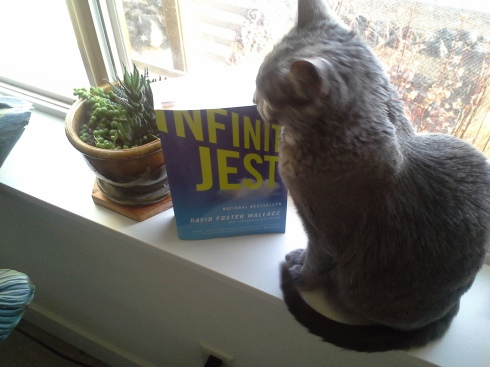In which Carrie, Steven and Kariessa play a game of Exquisite Corpse …
ROUND 1
Seed: It was a dark and stormy night at

Always
It was a dark and stormy night at
the circus and the clowns were restless. It had
neva occurred to Smithey that for once
he had gone a whole month without drinking water.
But that wasn’t important now, because the
water was there, in his four-tentacled hand.
He took a deep drink of the salty brine, savoring the
burn of it as it went down his esophagus. “Oh how
much better this would taste with a twinkie!”
So, he made a twinkie out of rotting wood and slime.
But somehow it lacked that je nais sai qua, like
the way dust motes dulled vision in wind.
He sighed and realized that he was forever
restless, forever a clown, and it would always be dark and raining.

Bella’s Addiction, Edward’s Reform
It was a dark and stormy night at
the end of a pencil when Bella snorted when
she was taking drugs. Then, Edward came
and pointed out that sugar wasn’t really a drug.
She looked up at him with dulled visage
as he hadn’t fed in weeks. His eyes gleamed
in a satisfied, easygoing sort of way, as he contemplated
the slimy snot running down her lips and
the gaping rents in his face, from which pus
had dripped. “You look good tonight,” he said with
Victorian charm. “Your earlobes look pale
and your scent…” He lunged forwards, crosses bared
and then changed his mind. There was a better way-which
involved vegetarians, and their little dogs, too.

Conquest of the Eyeballs: A History of Their Victories and Pulsating Ways
It was a dark and stormy night
at the haunted restaurant. Eyeballs floated
nervously, unsure of themselves, but confident
of their ultimate design. Dawkins appeared
and the zombers wondered who he was. Then,
he pointed out how clever he really was, so much more than
the evil scientist so many had thought
was going to be the first to make ants dance.
But the eyeballs had a new though, that perhaps
they could evolve, or devolve from high rank.
So, their floating changed. Each started to pulsate
and stared intently, daring Dawkins and the zombers
to do what they might, but knowing how
they would eventually pulsate their way into victory!
ROUND 2
Seed: She was a bad cat, really, if you
.jpg)
How Kitty’s Heart Turned to Ice: A Cautionary Tail
She was a bad cat, really, if you
weren’t paying close attention. “Once,” I said,
“She walked all the way across the field, carrying a
mountain on her back (dwarves included).
And the next day, she lounged around all day,
weary and sore, but tender in her affections.” Then,
everyone realized that the last sentence didn’t
follow from the first. But a cat has its tail
tucked underneath, and like the every flexible feline
she could produce round droplets of slime from her
ears or her… But wait! She has some
other things she cared about besides slime and genes.
She also loved to eat slime, which was totally
divine to cat kind, the Opiate of Meow.
So she became content. No more mountains, no
more affections. Her heart became cold and desolate forever.

Bad Cat I
She was a bad cat, really, if you
looked at it from the bird’s point of view. But
who cared about the bird, anyway? He was just
“endangered.” All those hippies need to come to
realize that there was an easy solution. Penguins
just needed to be genetically modified so that
they stopped the tux act and blend in.
And the cat knew that – knew that in a way that
made the world make sense. So, her evil plot
started edging up the plot pyramid, vying
for Evil Plot Victory. The first step was to get rid of
the lesser plots. She did this by suffocating them with
furball clots. The penguins paled. They
knew they had just one chance. They had to get
the Dark Lord Voldemort to help them. So they did. The
Dark Lord gave free tux rentals & she was finished.

Bad Cat 2
She was a bad cat, really, if you
thought about how she had drunk dog vomit and
then vomited that up, and drank that, too.
But that wasn’t the worst thing. Not at all – for
she also loved to roll around in her scat, and
then cat skat at the local club where all
the kool cats sat, chewing the fat on the mat eating
their own flesh. After all, they could make
more! The gene-squencing cats at Washington
had found a way to power cats with nuclear energy,
turning them into warheads. Technically, it was the plutonium,
but, when used effectively, those suckers
really roll round ranking, rhyming, running, and
eating each other. What no one knew was that
Edward and Bella never kissed or ate
cats, after all. So she was finally able to sleep, purring contentedly to herself.






.jpg)

